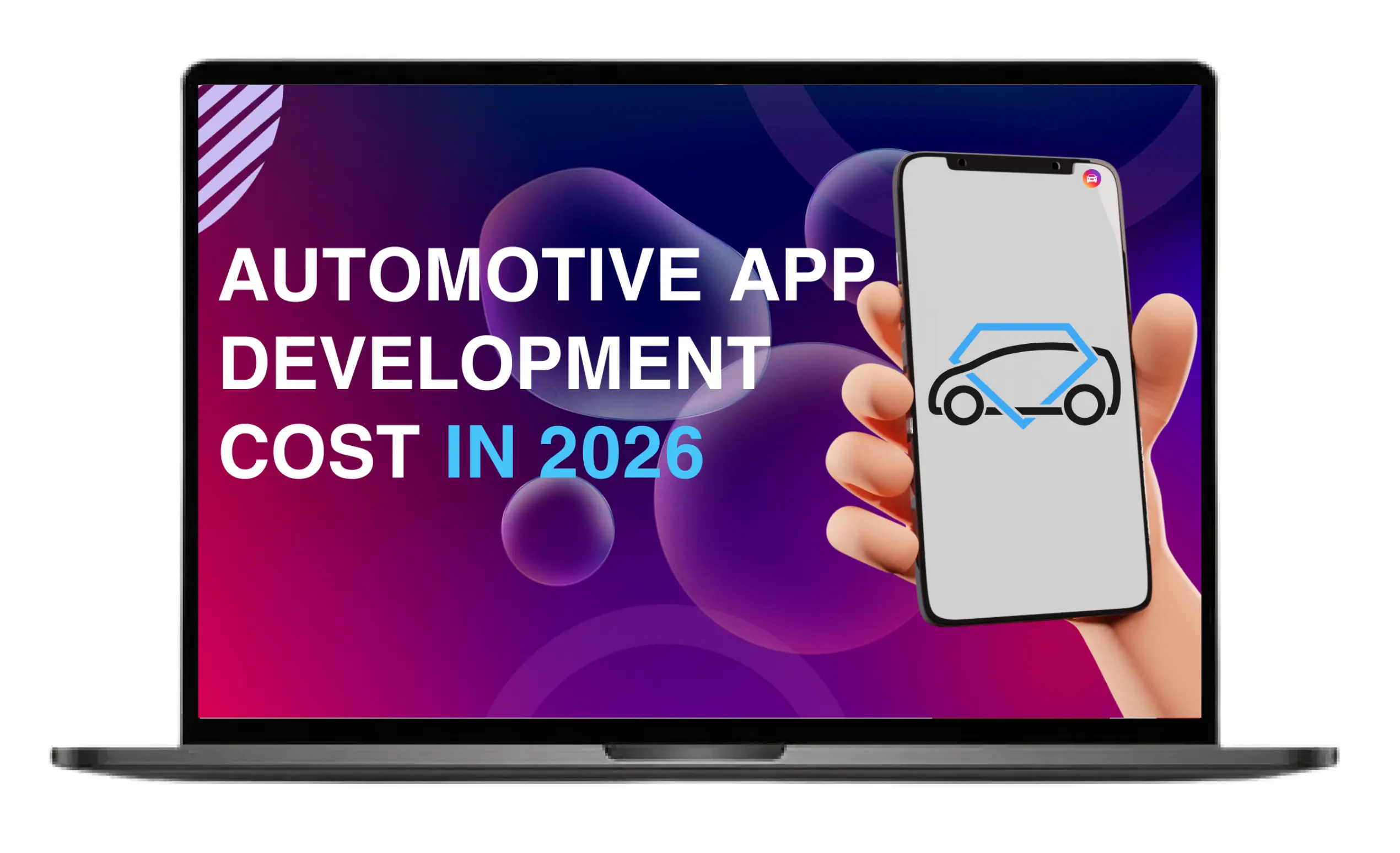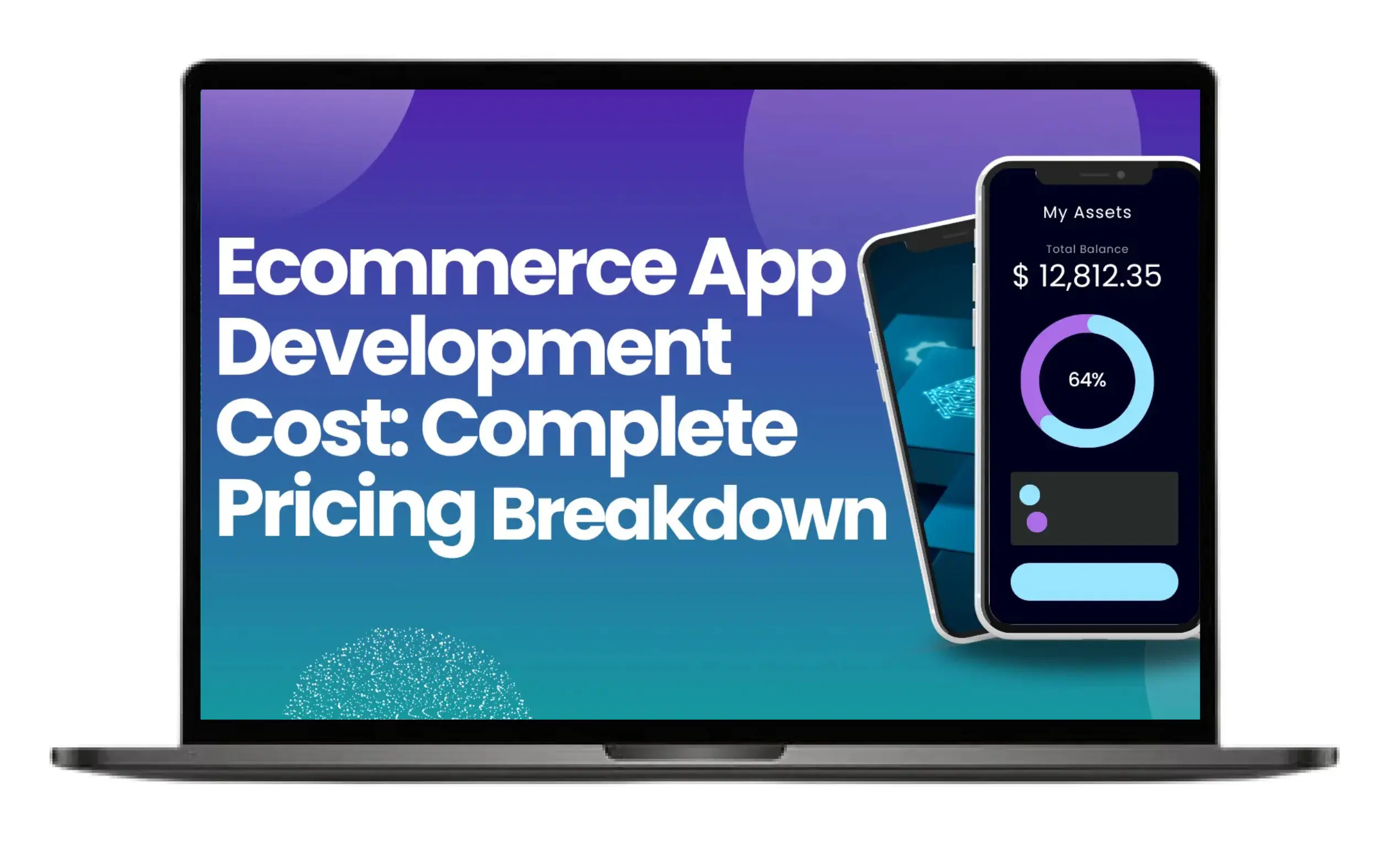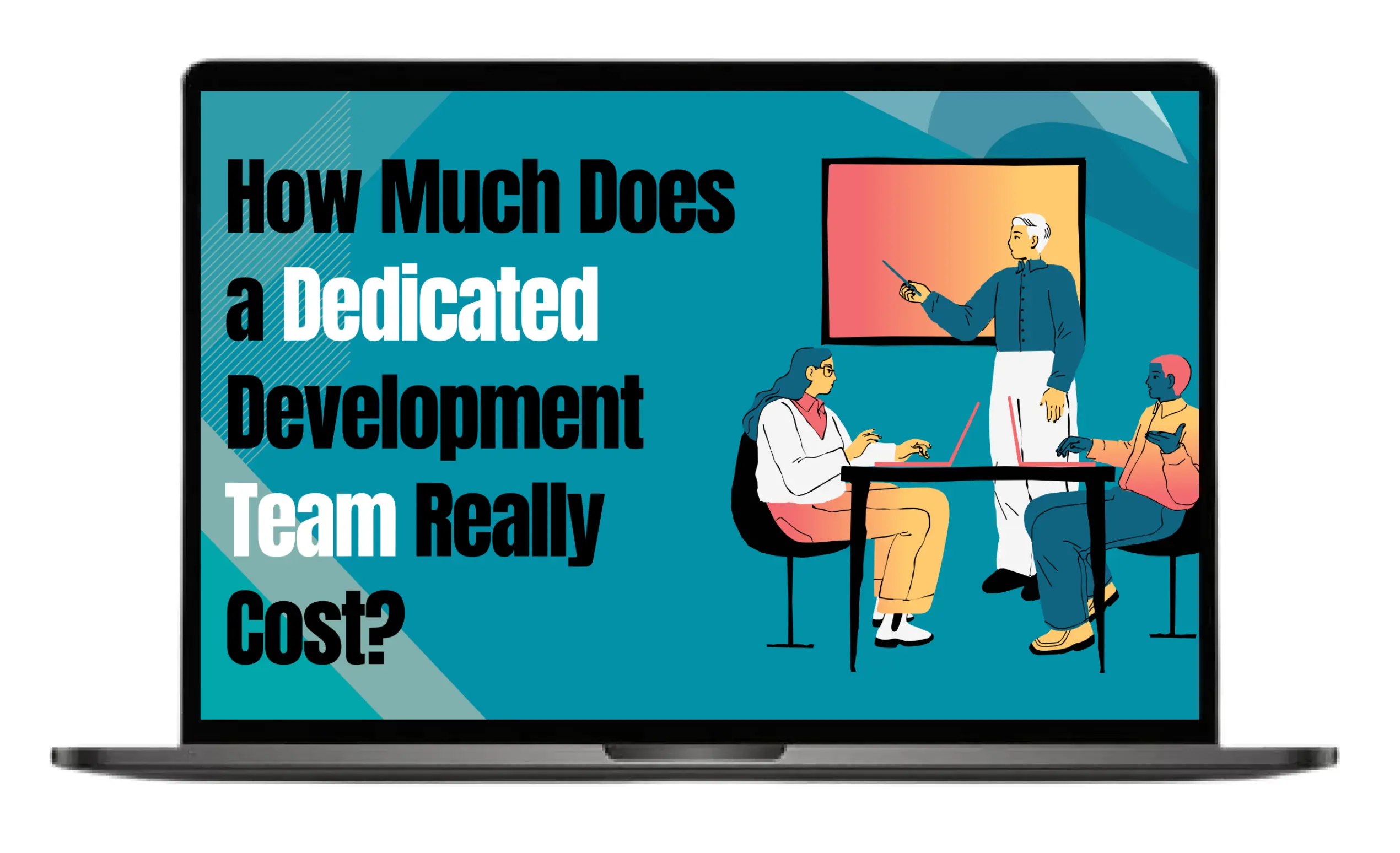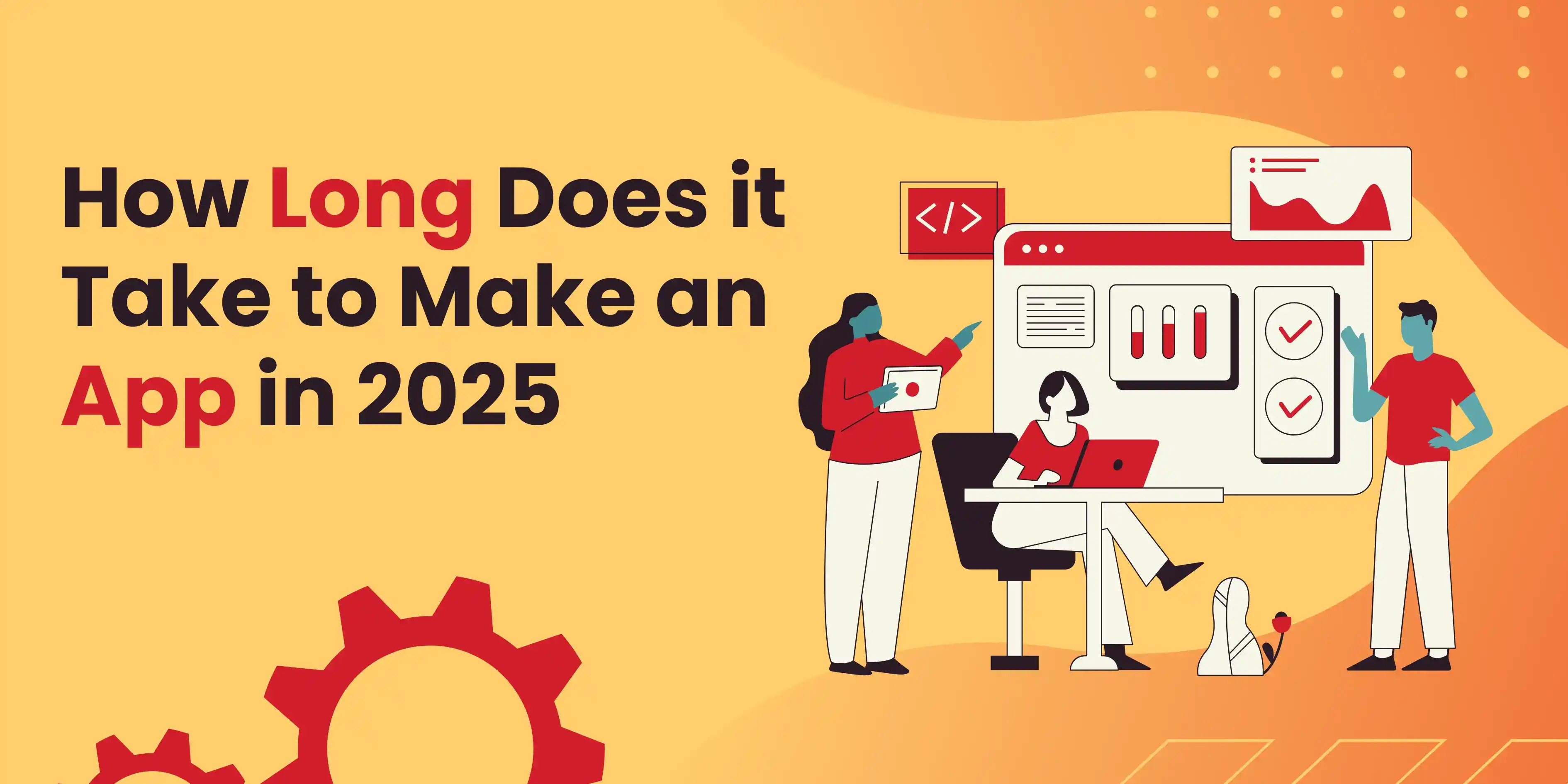
In 2025, mobile apps are more than convenient tools. They have emerged as business-critical platforms that define the way companies develop, market, and retain users. As the mobile application revenue is expected to reach over $673 billion globally, the pressure to launch faster and high-quality apps is greater than ever. However, research indicates that time-to-market is a major success parameter even though a lot of projects continue to run over time and budget.
This blog will help you understand the time required to build a mobile app, and factors which affect the timeline of mobile app development.
What Factors Affect App Development Time?
There are a number of factors that affect the time of app development. Every project is unique but these are few factors that are common in all app development projects that affect the timeline:
Complexity of the App
Time is most influenced by the complexity of your idea.
- Basic apps such as a note-taker, calculator, or habit tracker can require 2-8 weeks since only simple functions are required.
- Medium applications such as food delivery or fitness trackers typically require 3-6 months. These are user logins, payments, notifications, and dashboards.
- High-security or enterprise applications such as mobile banking or ride-sharing may require 6-12+ months. They need a scalable infrastructure, sophisticated security, and compliance testing.
Features and Integrations
The more features you add, the more time you have to develop.
- Payments: Gateway integration (Stripe or PayPal) requires 2-4 weeks due to compliance and security testing.
- Chat and Messaging: The implementation of secure real-time chat requires servers, APIs, and encryption. This can take 4-8 weeks.
- AI/ML characteristics: Chatbots, suggestions, or voice recognition can be added to 2- 3 months, depending on the complexity of the model.
- AR/VR: Virtual or augmented reality applications can require specialized design and testing, and incur the additional time of 2-4 months.
Team Size & Expertise
The individuals who support your project are a very big factor in the speed of your project. One developer can create an application, but the quality and speed of the process are usually limited. Smaller teams are faster and larger expert teams are the quickest but require greater investment. Skilled programmers also minimize mistakes, which save time and money.
- Individual developer: Can take 12 or more months on a medium app.
- Small team (3-5 people): Has the ability to finish a project within 3-6 months.
- Big expert team (10 or more): Reduces delivery time by approximately half but is costlier.
- Senior developers: Finish projects 30-40% faster than junior-heavy teams due to fewer mistakes.
Platforms (iOS, Android, or Cross-Platform)
The platform selection has a direct effect on your schedule. Cross-platform frameworks enable you to build two apps simultaneously, but on iOS and Android it doubles the effort. Nonetheless, some sophisticated applications still require native development to provide the optimal performance and experience.
- Native apps: Separate builds for iOS and Android, usually 4-8 months each.
- Cross-platform applications: Applications such as Flutter and React Native cut 30-40% of the development time on a single codebase.
- Performance: Advanced apps that include AR/VR or 3D features may require native builds.
- Decision factor: Speedier delivery is more favorable to cross platform, whereas high performance can need native.
Budget and Resources
Your budget dictates the amount of manpower, technology and speed that you can deploy in development. A tight budget generally causes time constraints whereas a robust budget can afford bigger teams, improved equipment and expedited outcome. Long-term quality, security, and scalability of your app are also influenced by investment.
- Low budget: Fewer developers and slower progress.
- Large budget: Add more personnel, high-quality equipment, and simultaneous testing to conserve time.
Average cost of app development in 2025 (Clutch):
- Simple app: $25,000 - $50,000
- Medium app: $50,000 - $150,000
- Complex app: $150,000 - $500,000+
The advantage of bigger budgets is that you can ensure faster delivery and stronger long-term app quality.
Average Time to Build Different Types of Apps in 2025
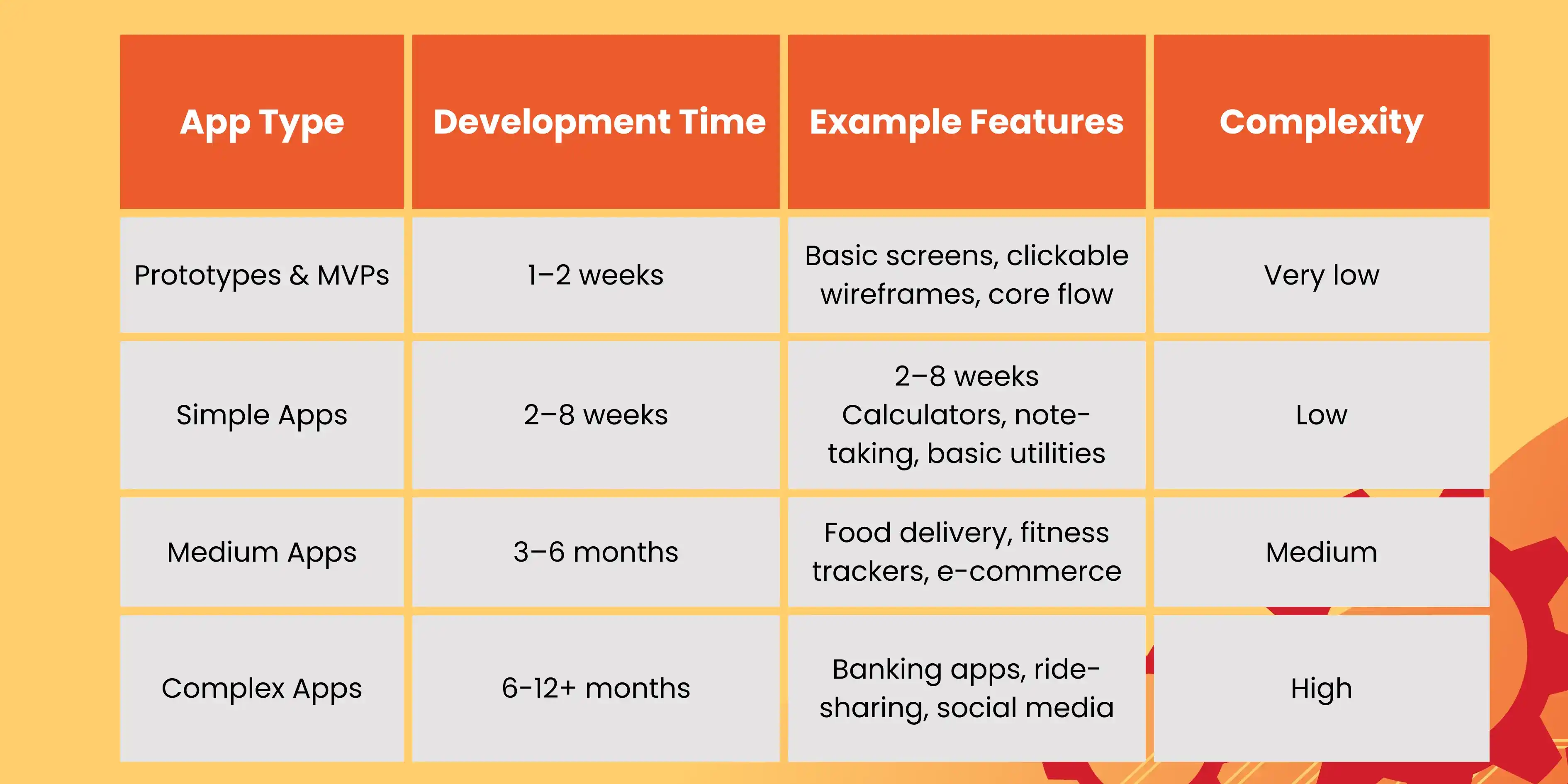
How AI and No-Code Platforms Have Changed Timelines?
The development of apps in 2025 is quicker than it used to be. This is because of AI-assisted coding, AI-based testing and no-code solutions. They are used to minimize the manual labor and accelerate delivery.
- AI-assisted code: GitHub Copilot or Chatbot writes code more quickly and corrects mistakes more rapidly.
- Automated QA: AI testing functions identify bugs within minutes rather than weeks.
- No-code platforms: App-building tools such as FlutterFlow and Bubble allow users to create applications without creating full-fledged code.
Pre-2020, most apps required months of coding and testing manually. In the current environment, AI apps development 2025 and no-code applications development 2025, the timelines can be shorter. Projects that used to be done in a year are now achievable in a few months.
App Development Times by Stages
Every stage in the app development process takes some time. Following are the stages and their timeline:
Stage 1: Idea validation and Wire-framing (Week 1-2)
This is the plan phase and it typically lasts one to two weeks. In this case, the app concept is narrowed with research and preliminary validation. Wireframes are designed to show the layout and user flow of the app. By explaining the concept upfront, businesses are saved the time and expensive overtime.
Stage 2: Design/ Backend (Month 1-3)
The backend and design require one to three months. The designers pay attention to the UI and UX in order to make the app appealing and convenient. Meanwhile, developers develop the necessary infrastructure, such as databases, servers, and APIs, that process logins, payments, and data storage. This stage is also the starting point of security planning to safeguard sensitive information.
Stage 3: Feature Development and integrations (Month 3-6)
This is the primary development stage and takes three to six months. In this case, the primary features of the app are created, such as logins, search capabilities, notifications, and payments. Maps, chat systems or AI functions are also integrated. When iOS and Android versions have to be used, cross-platform frameworks such as Flutter can save time through a common codebase.
Stage 4: Testing, Launch & Updates (Month 6 onwards)
Testing starts when the features are complete and lasts until launch. This phase begins approximately in month six and extends beyond release. Manual and automated tests are used by the QA teams in order to detect and correct bugs. A stable version of the app is then released on sites such as the App Store and Google Play. Once launched, frequent updates are performed to enhance performance and introduce new features on the basis of user feedback.
At Red Star Technologies, these stages are sped up with professional planning, staff and advanced development solutions. This guarantees the delivery of apps within a faster period without affecting the quality, security, or scalability.
FAQs
1. How long does it take to build a simple app in 2025?
An app as simple as a note-taker or calculator typically requires 2 to 8 weeks. These applications are limited in functionality and require no intensive backend.
2. Can AI really speed up app development in 2025?
Yes. Code generation, bug fixes, and even automated app testing are now done through AI. This can significantly cut down the time schedules by 30-40% over traditional development.
3. What is the fastest way to build an app today?
No-code systems such as FlutterFlow or Bubble are the quickest methods. They enable you to create a working prototype within 1-2 weeks without creating full code.
4. How much does app development cost in 2025?
Costs vary by complexity. Simple applications can cost between $25,000 and 50,000, medium applications between 50,000 and 150,000 and complicated applications can be more than 500,000.
5. Should I build native apps or use cross-platform frameworks?
Native is the best when you require high performance such as gaming or AR apps. However in most business applications, cross platform frameworks not only save time but also money but are also good in performance.








